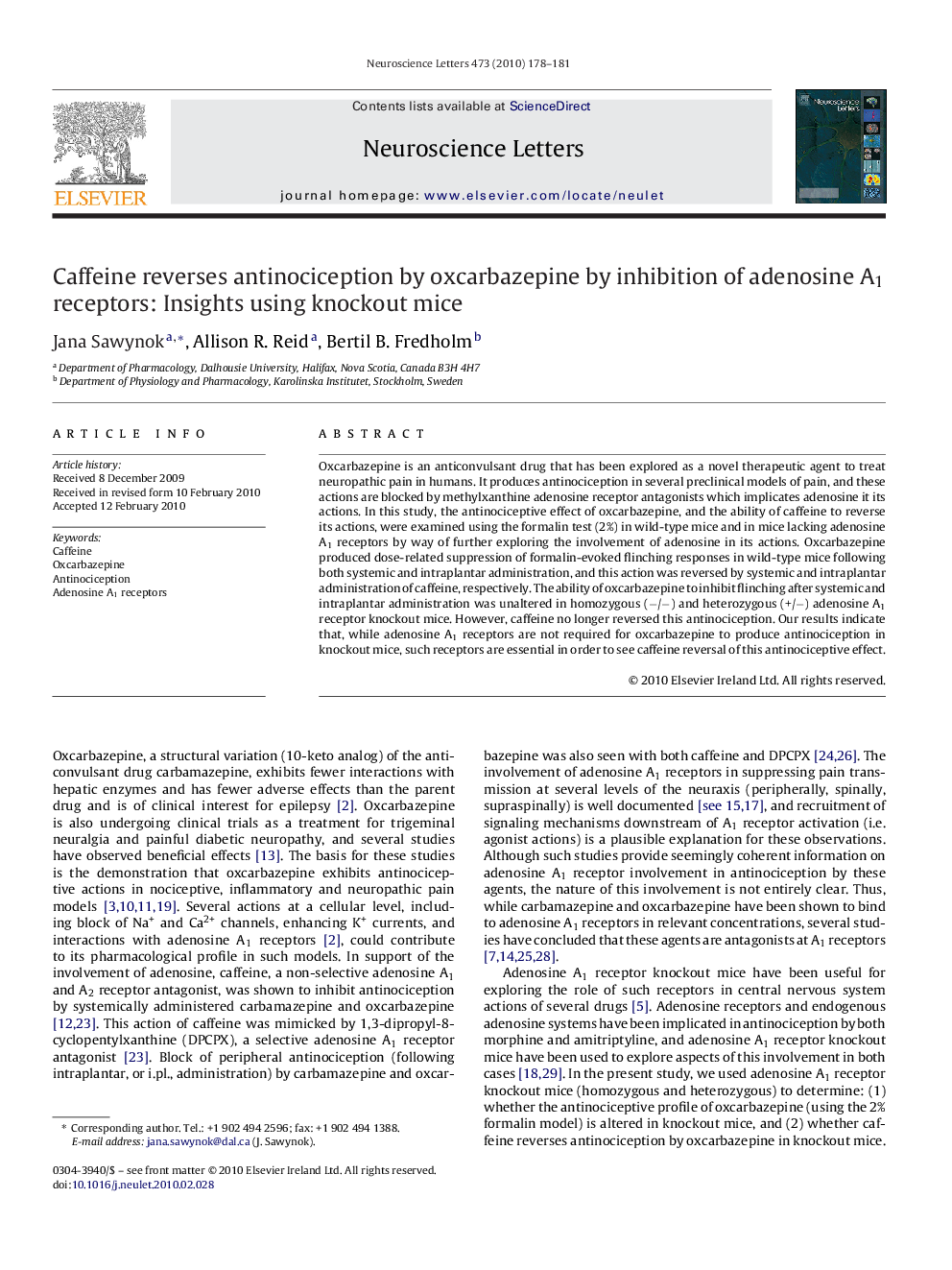| Article ID | Journal | Published Year | Pages | File Type |
|---|---|---|---|---|
| 4346141 | Neuroscience Letters | 2010 | 4 Pages |
Oxcarbazepine is an anticonvulsant drug that has been explored as a novel therapeutic agent to treat neuropathic pain in humans. It produces antinociception in several preclinical models of pain, and these actions are blocked by methylxanthine adenosine receptor antagonists which implicates adenosine it its actions. In this study, the antinociceptive effect of oxcarbazepine, and the ability of caffeine to reverse its actions, were examined using the formalin test (2%) in wild-type mice and in mice lacking adenosine A1 receptors by way of further exploring the involvement of adenosine in its actions. Oxcarbazepine produced dose-related suppression of formalin-evoked flinching responses in wild-type mice following both systemic and intraplantar administration, and this action was reversed by systemic and intraplantar administration of caffeine, respectively. The ability of oxcarbazepine to inhibit flinching after systemic and intraplantar administration was unaltered in homozygous (−/−) and heterozygous (+/−) adenosine A1 receptor knockout mice. However, caffeine no longer reversed this antinociception. Our results indicate that, while adenosine A1 receptors are not required for oxcarbazepine to produce antinociception in knockout mice, such receptors are essential in order to see caffeine reversal of this antinociceptive effect.
